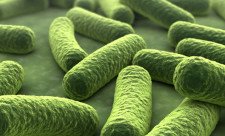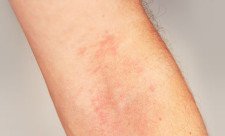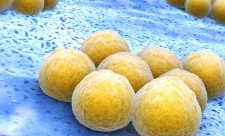
Some months ago, we advised on this website that the state of our skin reflects what we eat – e.g. as a cause of allergies or skin disorders such as atopic dermatitis. A study conducted at the Technical University of Munich (TUM) has now investigated whether excessive salt consumption can lead to allergic skin diseases. The rising level of salt in our diet (among others as a result of more convenience foods) could hence be a contributing factor to the increasing prevalence of atopic dermatitis.
In a patient study the team of virologist Christina Zielinski found increased salt concentrations in the skin of atopic dermatitis patients. Compared to the skin of healthy participants, sodium levels in affected skin areas were up to 30 fold higher. “This matches the observation that patients with atopic dermatitis often have significantly higher levels of the bacterium Staphylococcus aureus on their skin. Staphylococcus aureus is one of few skin flora bacteria which replicates well under salty conditions”, writes the Pharmazeutische Zeitung.
The studies also discovered that sodium chloride (i.e. salt) has the ability to reprogram human T cells into Th2 cells. T cells are important helper cells which help to protect our skin against infections, as the science journalist Nsikan Akpan writes. Th2 cells, on the other hand, may discharge neurotransmitters which help cause allergies and which are released in excessive quantities in patients with atopic dermatitis.
This does suggest that the skin’s salt level plays a key role for skin health, or at least in the search for the causes of skin disorders such as atopic dermatitis. However, the question remains how these increased salt levels occur and whether high concentrations of salt in our food really are the cause of atopic dermatitis and other skin disorders. “We also don’t know if a low-salt or high-salt diet can influence the appearance and progression of atopic dermatitis or other allergic conditions”, Professor Zielinski is quoted in a TUM press release. These and other questions will have to be examined and answered in future studies.
Sources:
https://stm.sciencemag.org/content/11/480/eaau0683
https://www.tum.de/nc/die-tum/aktuelles/pressemitteilungen/details/35257/
https://www.pharmazeutische-zeitung.de/salz-als-checkpoint-der-allergie/
https://www.pbs.org/newshour/science/can-too-much-salt-lead-to-bad-skin
Dieser Post ist auch verfügbar auf: German

 8. Nov 2019
8. Nov 2019 Popular
Popular Recent
Recent Comments
Comments












